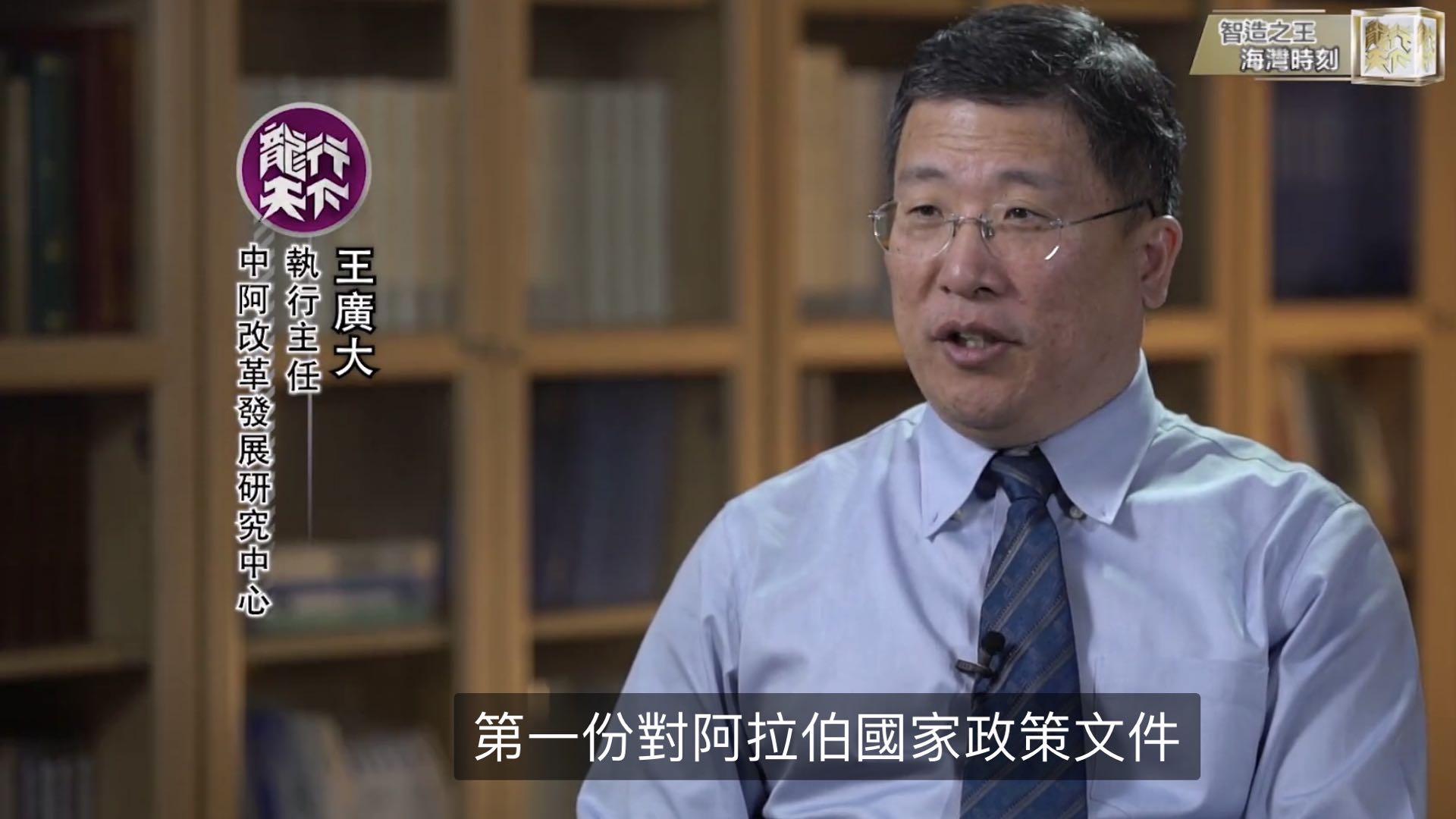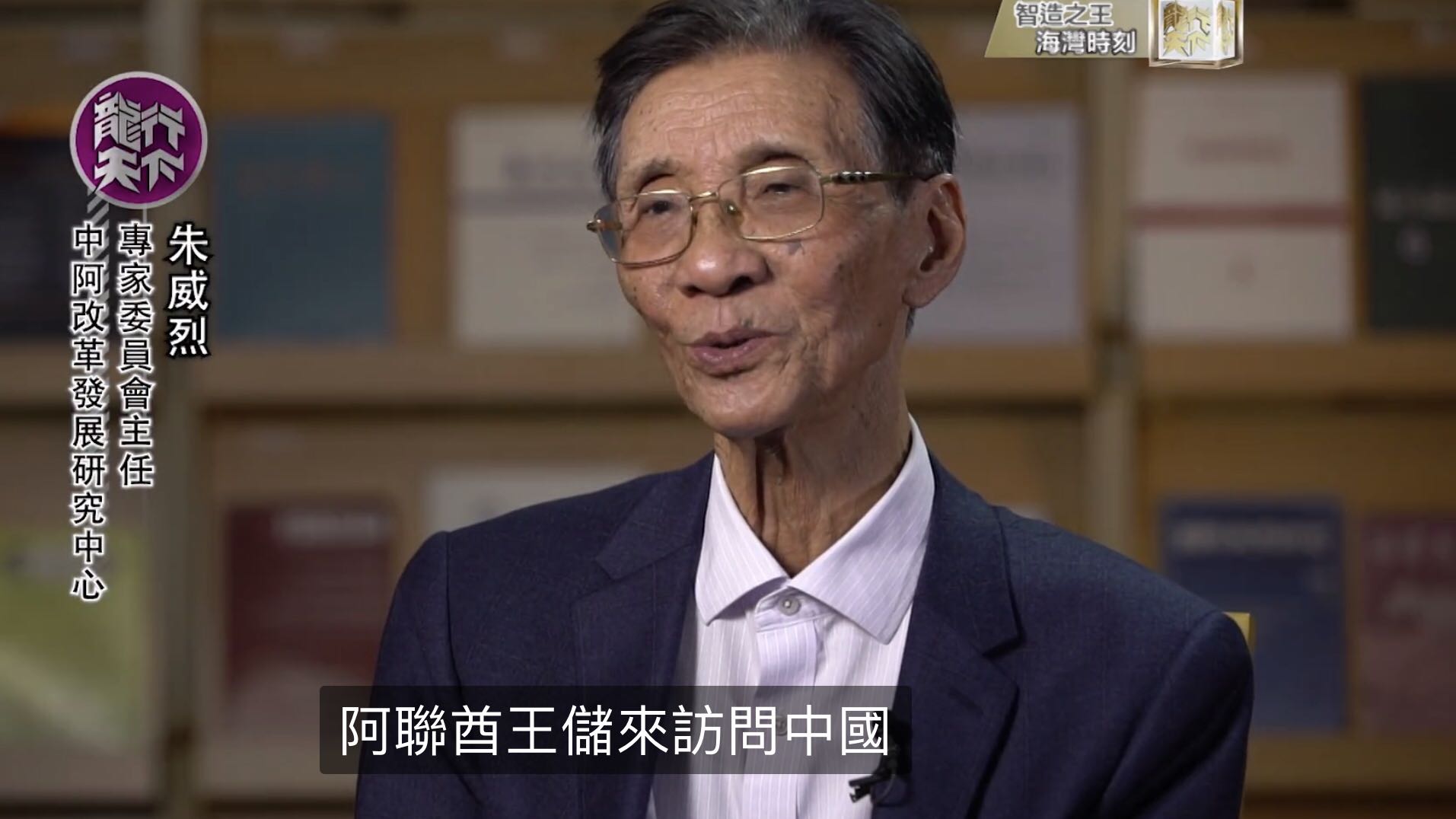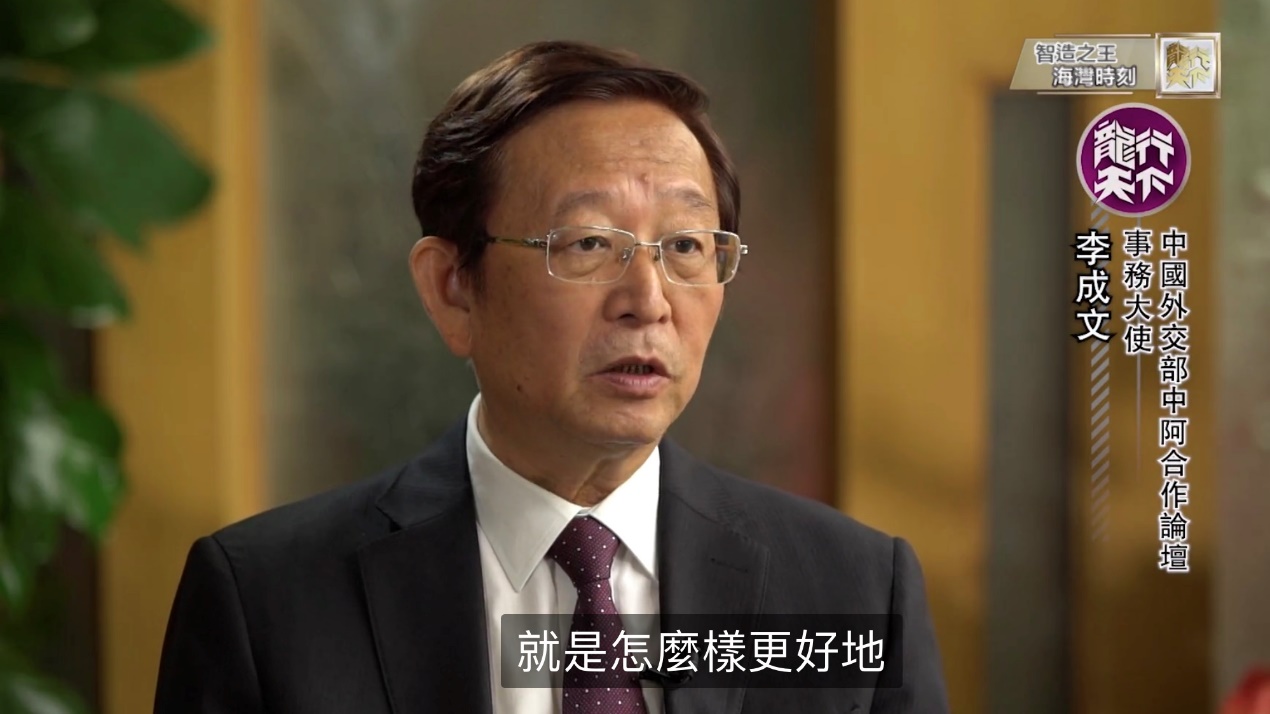In November 2019, H.E. Li Chengwen, Ambassador of the China-Arab States Cooperation Forum Affairs of the Ministry of Foreign Affairs, Chairman of CARC; Professor Zhu Weilie, Director of the Expert Committee of CARC; Professor Wang Guangda, Secretary-General and Executive Director of CARC, received an interview with “Odyssey of the Dragon” of Phoenix Satellite Television to express their views on the development prospects of Chinese companies in the Gulf region.
On July 15, 2018, before the Russia World Cup Finals, the handover ceremony of the Qatar World Cup was held in the Moscow Kremlin. The 2022 World Cup entered the Qatar time, the preparations for Doha became the focus of the world, and what kind of development opportunities will Chinese companies face?
Wang Guangda first explained the current Chinese policy toward Arab countries. In 2016, the Chinese government issued the first policy document on Arab countries, which determined the pattern of China-Arab economic and trade cooperation, namely: 1+2+3 model, specifically: 1. Energy cooperation as the main axis, including oil and natural gas; 2.Facilitating infrastructure construction and trade investment; 3. The three high-tech fields of nuclear energy, space satellite and new energy are the breakthrough points.

Gulf countries, especially Qatar, are at the intersection of geopolitical conflicts. Geopolitical uncertainty will not only affect the internal stability of Gulf states, but also affect the development of Chinese enterprises in the region. Wang believes that: There is homogeneous competition among the Gulf countries, and the advantages among the countries are basically the same: the possession of rich oil and natural gas resources; the inadequacies are basically similar: the simplification of economic development model and the over-reliance on oil and gas revenues. Therefore, getting rid of a single oil and gas economy and turning to comprehensive development in more fields is an important part of Qatar's economic transformation. Then, what kind of development opportunities will Chinese enterprises face in this transformation?
Zhu Weilie believes that the stadiums of Qatar World Cup in 2022 will be built by Chinese companies. The Qatar side also tends to hand over the stadiums to Chinese companies. This shows that the scale of China-Arab economic and trade cooperation is developing in depth. Plans related to areas such as port construction and new energy development are being continuously proposed. Encouraged by the “Looking East” strategy of the Arab countries, China and Arab countries have realized the mutual benefit and a win-win cooperation, and there is no threat to each other’s security interests. Therefore, the development prospects of Chinese companies in the Gulf countries are very optimistic.

Then, how much do Chinese companies know about the high-end market in the Gulf countries? Are there any new requirements for Chinese companies?
Ambassador Li Chengwen believes that the current Gulf market is relatively unfamiliar to Chinese companies. Chinese companies still need to strengthen the comprehension and improve their competitiveness in accordance with laws, contracts, and business practices, actively promote the upgrading and transformation of enterprises and improve the level of internationalization.

Since the establishment of the center, CARC has been actively functioning as a platform for exchange of ideas. By October 2019, nine seminars for Arab officials and one seminar for Chinese and Arab political parties have been held. A total of 267 Arab officials from 22 Arab countries have been trained, including the principals in the field of infrastructure construction. They rely on the seminars organized by the Center to actively understand the development model of Chinese enterprises and overseas investment, and strive to tap the new potential of China-Arab cooperation. The Center has played an important role in promoting China-Arab economic and trade connectivity, also the China-Arab cooperation with mutual benefit.
